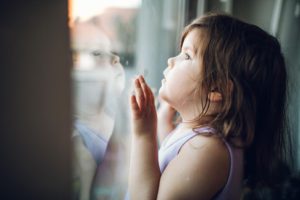I would be lying if I said I didn’t used to love school closures here and there (the break was a relief). That’s no longer the case. My perspective on what schools and teachers mean to families and children has completely shifted.
I now understand that for many children school is an escape, a solace and for some it’s even a place of safety.
 Falling through the cracks
Falling through the cracks
We’ve all seen the horrific headlines over the last few weeks. The faces of Star Hobson and Arthur Labinjo-Hughes filled newspapers. The atrocities these babies endured doesn’t bare thinking about, but their deaths could have been avoided.
Sadly, cases like these are more common than we’d like to think.
In 2020/21, the NSPCC helpline received almost 85,000 contacts from adults with concerns about the wellbeing of a child. This is a 23% increase compared to the previous year.
Locked down and locked in
It’s no doubt the last 2 years will never be forgotten. For most of us it the memories will be a balance of good and bad. However, the impact of lockdown cannot be underestimated: job losses, changing family dynamics and school closures caused major disruption to children’s lives.
 I can’t help but think how utterly terrifying it must have felt for children (once the novelty of no school had worn off). Their routine, social circle and education was dismantled overnight and in many ways is still not back to normal.
I can’t help but think how utterly terrifying it must have felt for children (once the novelty of no school had worn off). Their routine, social circle and education was dismantled overnight and in many ways is still not back to normal.
Many teachers will know of a handful of learners that they feel a pang of guilt and worry about over the weekends, holidays, and evenings. The learner who arrives in last week’s uniform, with their head down and unable to form friendships. Or the one who never has any remarks about upcoming holidays and who stays behind to avoid going home.
These are the students that don’t ever make a fuss but who play on every teacher’s mind. These are the students that were horrified at the thought of staying home instead of going to school.
Loss of learning
It’s expected the learners who’ve been impacted most from closures is those under the age of 5. Children like Star and Arthur. The first 5 years of a child’s life are paramount. This is when major developmental milestones are reached. Not only this but during these ages, your child is utterly dependent on you for every need: communication, hygiene, food, and love.
Whilst figures vary per region, it’s expected that learners lost a third of expected learning during the pandemic.
Pupils from the poorest homes experiences higher learning loss. These gaps in learning between the poorest in our society and their more privileged counterparts will more than likely consequence in a significant decline in social mobility.
With every grain of my being, I hope that the government never decides to mandate school closures again. Not only for the welfare and educational outcomes of our children but to protect the most vulnerable children and families in our society.

